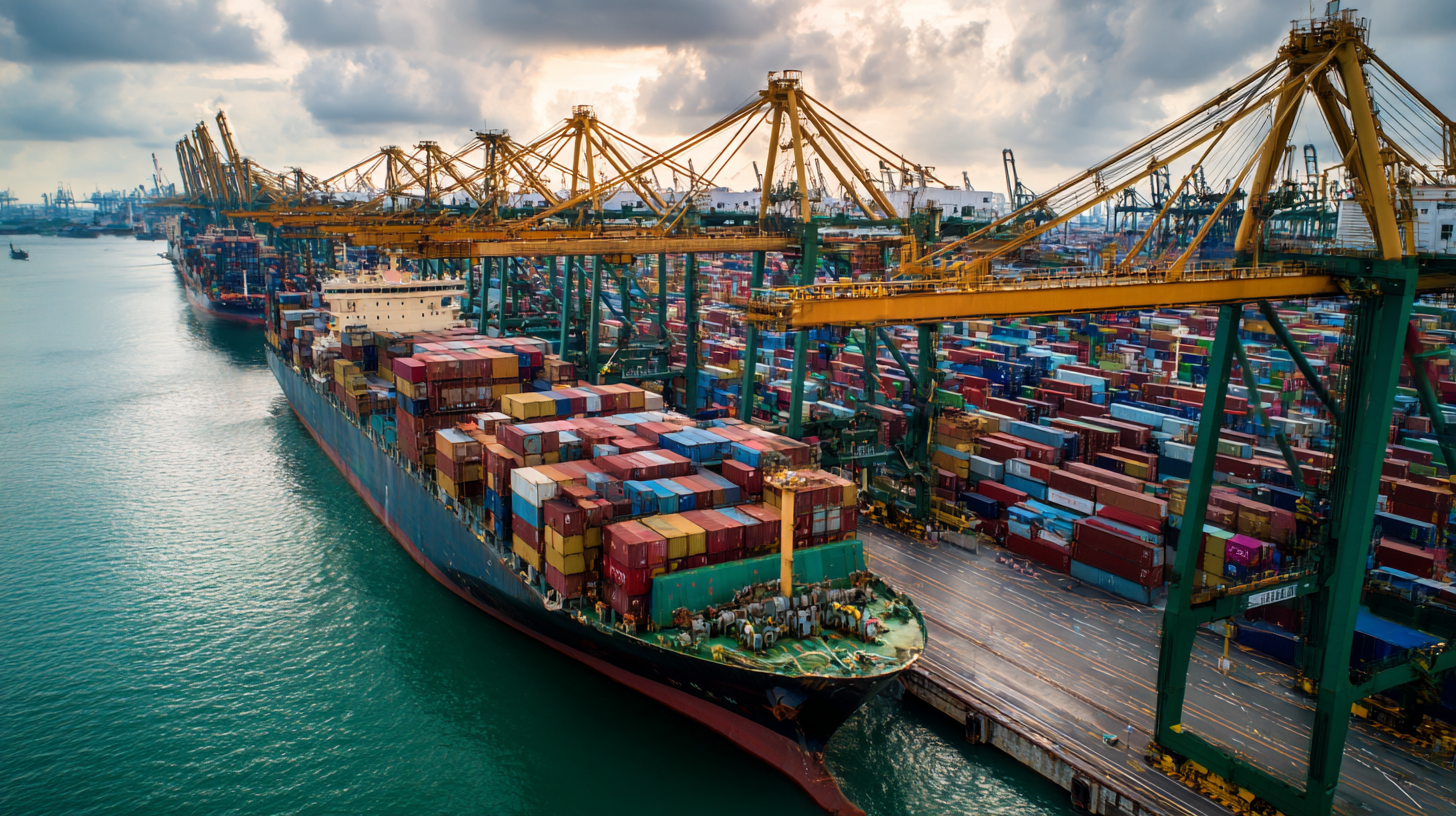Navigating Import-Export Certifications for Best Tylosin Phosphate: A Comprehensive Guide
As the global demand for effective antibiotic growth promoters continues to rise, Tylosin Phosphate has emerged as a key player in the animal health industry. According to a recent report by Grand View Research, the global veterinary antibiotics market is projected to reach USD 5.66 billion by 2025, with a significant portion driven by the increasing consumption of Tylosin Phosphate in livestock production. This powerful antibiotic is particularly valued for its effectiveness against respiratory diseases and enteric infections in swine and poultry, leading to improved feed efficiency and overall animal health. However, navigating the complex landscape of import-export certifications for Tylosin Phosphate can be challenging. With varying regulations across different countries, understanding the necessary certifications and compliance requirements is essential for manufacturers and suppliers aiming to succeed in this competitive market. This comprehensive guide will explore the intricacies of import-export certifications for Tylosin Phosphate, shedding light on best practices and industry standards.

Understanding Tylosin Phosphate and Its Importance in Import-Export
Tylosin phosphate, an important antibiotic primarily used in veterinary medicine, plays a crucial role in the livestock industry. According to the Global Veterinary Antibiotics Market report, the demand for tylosin phosphate has been steadily increasing due to the rising need for effective livestock disease management. Market analysts predict a compound annual growth rate (CAGR) of approximately 5.1% from 2021 to 2026 for veterinary antibiotics, with tylosin phosphate being one of the key contributors to this growth. Its effectiveness against gram-positive bacteria makes it essential for enhancing animal health and productivity.
In the context of international trade, understanding the certifications required for importing and exporting tylosin phosphate is vital for businesses. Regulatory frameworks such as the U.S. Food and Drug Administration (FDA) and the European Medicines Agency (EMA) impose strict guidelines governing the approval and use of veterinary drugs, including tylosin phosphate. Compliance with these regulations, as highlighted in a recent report by Transparency Market Research, is necessary to mitigate the risks associated with antibiotic resistance in livestock. Therefore, ensuring familiarity with these certifications can facilitate smoother cross-border transactions and enhance the overall efficiency of the global supply chain for this essential substance.
Tylosin Phosphate Import-Export Trends
This chart illustrates the import and export volumes of Tylosin Phosphate over the years 2020 to 2023. The data highlights the growing demand and supply within the global market.
Essential Certifications Required for Tylosin Phosphate Trade Compliance
In the realm of international trade, compliance with essential certifications is paramount, particularly for products like Tylosin Phosphate. As highlighted in the recent news regarding cross-border e-commerce compliance, sellers are urged to prioritize obtaining the necessary certifications to avoid operating in violation of local regulations. Southeast Asia's e-commerce platforms emphasize that businesses without proper documentation are barred from selling, reflecting a growing trend where regulatory adherence cannot be overlooked.
Market projections indicate that the global ISO certification market is set to grow from an estimated $18.59 billion in 2025 to $57.48 billion by 2033, with a compound annual growth rate of 15.2%. This substantial growth underscores the increasing importance of certifications across various industries, including pharmaceuticals, where compliance requirements are stringent. In addition, the potential fragmentation risk in compliance frameworks, as noted by safety experts, can further complicate certification processes, making it vital for businesses to navigate these waters carefully and maintain consistent standards across jurisdictions. Engaging with industry reports and staying informed about shifting regulations will be crucial for ensuring seamless trade compliance in the intricate landscape of Tylosin Phosphate export and import.

Step-by-Step Checklist for Securing Tylosin Phosphate Certifications
When venturing into the import-export business of Tylosin Phosphate, securing the necessary certifications can be a daunting yet critical task. To streamline this process, it's essential to establish a step-by-step checklist. Firstly, ensure that you are aware of the specific regulatory requirements in your target market, as these can vary significantly from one region to another. This includes understanding the necessary documentation, testing standards, and labeling requirements that are crucial for compliance.
Next, gather all required documents, such as Certificates of Analysis, Good Manufacturing Practice (GMP) certificates, and import permits. It's advisable to create a detailed timeline that outlines when each document should be obtained, as some may require lead time for testing or approvals. Furthermore, engaging with a compliance consultant or legal expert specializing in agricultural imports can help simplify the process and highlight any nuances you may have missed. Following this checklist diligently will enhance your chances of obtaining the required certifications efficiently, ensuring that your operations run smoothly and are compliant with international standards.
Navigating Import-Export Certifications for Best Tylosin Phosphate: A Comprehensive Guide - Step-by-Step Checklist for Securing Tylosin Phosphate Certifications
| Certification Type | Issuing Authority | Process Duration | Cost Estimate | Validity Period |
|---|---|---|---|---|
| Import License | Ministry of Commerce | 4-6 weeks | $500 | 1 year |
| Export License | Department of Trade | 3-5 weeks | $300 | 1 year |
| Health Certificate | Food and Drug Administration | 2-4 weeks | $200 | 2 years |
| Quality Assurance Certification | International Standards Organization | 6-12 months | $1000 | 3 years |
| Toxicology Certificate | Environmental Protection Agency | 4-8 weeks | $600 | 5 years |
Key Regulatory Bodies Involved in Tylosin Phosphate Exports and Imports
When engaging in the import-export of Tylosin Phosphate, it's essential to recognize the key regulatory bodies that oversee these transactions. The Food and Drug Administration (FDA) in the United States plays a pivotal role, ensuring that all agricultural medications, including Tylosin Phosphate, meet stringent safety and efficacy standards. According to a report by the American Veterinary Medical Association, compliance with FDA regulations can significantly streamline market entry, providing a competitive edge in the growing animal health industry, which is projected to reach $60 billion by 2025.
Additionally, international bodies such as the World Organization for Animal Health (OIE) and European Medicines Agency (EMA) are crucial in shaping the global landscape for Tylosin Phosphate imports and exports. The OIE establishes guidelines that member countries must follow to facilitate safe trade in animal health products. Recent studies indicate that adherence to OIE standards can reduce the time required for market approvals by nearly 30%. Meanwhile, the EMA's rigorous evaluation processes ensure that Tylosin Phosphate products are safe and effective, further boosting consumer confidence and regulatory compliance across Europe, which accounts for approximately 35% of the global veterinary pharmaceutical market.
Common Challenges in Obtaining Import-Export Certifications and Solutions
Navigating the complexities of import-export certifications can be daunting, particularly for those dealing with specialized products like Tylosin Phosphate. These certifications are essential for ensuring compliance with international trade laws, but common challenges often emerge during the application process. A recent report from the International Trade Centre indicated that nearly 30% of businesses encounter delays due to incomplete documentation or misunderstanding regulatory requirements. Addressing these issues early can save both time and money for import-export businesses.
To mitigate the challenges, it is advisable to establish a thorough understanding of the regulatory landscape before embarking on the certification process. Companies should invest in comprehensive training programs for their staff, focusing on the specifics of import-export compliance and the intricacies of certifications relevant to their products. Furthermore, leveraging technology to automate documentation and maintain accurate records can considerably streamline the process. According to recent industry surveys, firms that utilize automated systems experience a 40% reduction in compliance-related errors, enhancing their ability to navigate the certification maze effectively.






